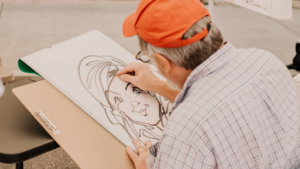Some people appear to be contented and fulfilled right away, while others, on the other hand, have no idea what they are good at. It may be a difficult task at times, but the wonderful news is that it is also a possible one. The road to self-discovery and personal development is a lifelong journey. As we improve and grow, our natural skills and abilities are also brought to light. Self-discovery is a significant part of personal and professional growth that allows us to better recognize our natural abilities and skills. It’s critical to discover your natural gifts to make educated decisions about your career, build confidence, and ultimately live a more satisfying life. Clarity of abilities is not an inborn quality, but rather a learnable skill.
In the process of understanding who we are and what we can do, a significant transition may occur. As you learn more about yourself, you may discover new or dormant abilities that you never recognized before. Self-discovery is a process that necessitates careful observation, exploration, and feedback from others. Curiosity and an open mind are required for the journey. Talents are discovered through a variety of experiences and ever-changing interests. During this process, many people discover talents that completely change their objectives or open new options for them.
Finding out what you’re good at is a continuous process, not a one-time event. It’s not the end of the line, but rather a new starting point for development. Growth also necessitates adaptability, perseverance, and a willingness to adapt to new circumstances. It’s possible that you’ll develop new strengths as your skills become clearer. People who develop their talents frequently report higher levels of problem-solving, communication, and cooperation. Self-discovery provides deeper self-awareness and a strong foundation for long-term happiness and accomplishment.
How To Discover Your Talents
1. Reflect on Your Past Experiences
The past is a great starting point for learning about your natural abilities. Consider previous triumphs, pastimes, and situations in which you were completely engrossed. There is a strong probability that you will come across things you were naturally good at. Moments when you felt relaxed, energized, focused, or self-assured are often the most revealing.
Journaling is a powerful tool for this step. Consider situations in which you were proud of yourself or satisfied with a job well done. Try to remember instances when you were so absorbed in what you were doing that you lost track of time. Praise-worthy tasks that you consider to be minor accomplishments, such as helping others, planning activities, or solving problems, should also be included.
To gain more insight into your current strengths, ask yourself questions like: What have I had a talent for doing in the past? and What do I receive the most compliments on from others? Attempt to categorize your experiences by sorting them into areas such as creativity, leadership, communication, or analytical skills. This careful review of your history can help you better recognize your present strengths and offer direction for the future.

2. Seek Feedback from Others
One of the most beneficial ways to learn about yourself is to ask others. Friends, family members, acquaintances, co-workers, and even mentors have observed you in a variety of settings and roles. They may be able to identify skills in you that you take for granted or overlook.
When soliciting others’ opinions, be intentional and specific. Ask open-ended questions that encourage in-depth responses rather than simple yes-or-no answers. For example, you could ask when others have observed you at your best or what skills they believe set you apart. Be open to both compliments and constructive criticism, as both can provide useful information.
When requesting feedback, remember to create a safe and open atmosphere for honest communication. By listening attentively, avoiding defensiveness, and expressing gratitude, you can foster a sense of trust. Pay attention to recurring themes in the feedback you receive, as these often point directly to your core strengths.
Related: 11 Effective Ways To Be More Spontaneous in Everyday Life
3. Try New Activities
Experimenting with new pastimes is one of the most effective methods for identifying hidden talents. This exploration may reveal abilities you were previously unaware of. When you step outside your comfort zone, you expose yourself to new experiences that allow your talents to emerge.
The first step is to make a list of activities you’ve been meaning to try but haven’t yet pursued. These may include interests that spark your curiosity, hobbies you’ve always wanted to explore, or activities you once enjoyed but set aside. Classes, clubs, or community groups can make trying new things easier and more enjoyable, especially when others share similar interests.
Volunteering is another excellent way to experiment with new skills while making a positive impact. It allows you to take on different roles and responsibilities in a lower-pressure environment than everyday life. Through both success and struggle, you’ll gain valuable self-awareness. Keep track of your experiences so you can reflect on them later.
4. Take Personality and Skills Assessments
Personality and skills assessments can help you better understand your strengths and tendencies. These tools assist in identifying recurring patterns in your thinking, working, and communication styles. When used thoughtfully, they can offer meaningful insights.
Openness and acceptance are essential when interpreting assessment results. These evaluations should not be viewed as restrictive labels. Instead, consider them a starting point for exploration and self-awareness. Compare the results to your daily experiences and assess how closely they align.
Make the results more applicable to everyday life by taking action. Seek environments, projects, or mentors that help you strengthen your key abilities. By applying what you learn, you can refine and better understand your talents.

5. Analyze Your Interests and Passions
Activities that captivate you and hold your attention for extended periods are often strong indicators of natural ability. Reflect on what you have enjoyed in the past or currently find engaging. Focus on your hobbies, interests, and activities you genuinely enjoy, without overanalyzing or judging them.
Pay close attention to what motivates and energizes you. Maintaining a daily or weekly journal can help you identify meaningful patterns. Regular self-check-ins can reveal valuable insights from your thoughts and behaviors. Ask yourself questions such as: What activities do I enjoy the most? and Why do I enjoy them?
It’s also helpful to use additional tools, such as personality assessments and feedback from others, to connect your interests to your talents. The more time you spend doing what you enjoy, the more skilled you become. When you engage in activities you care about, your talents naturally come to the surface, creating greater clarity.
Related: 11 Strategies To Enhance Self-Awareness
6. Set Goals for Skill Development
Goal-setting is the next logical step once you’ve identified and gained confidence in your talents. Goals act as a roadmap and a source of motivation. They also provide structure to the process of mastering a skill. Growth requires intentional effort, and a clear development plan can help you stay focused and see progress sooner.
Break each strength into smaller components and set specific objectives for each. For example, if communication is a strength, your goals might include taking a class or writing regularly. Create a schedule with clear timelines to maintain momentum and motivation.
Regularly reassess your progress. As you grow, your interests, abilities, and goals may evolve. Staying adaptable ensures your development plan remains relevant and effective.
7. Nurture Your Talents
Discovering your talents is only the beginning. True growth occurs when you actively work to develop them. Talents require consistent practice and care, and effort is necessary to reach your desired level of mastery. Setting aside dedicated time ensures your abilities have room to grow.
Investing in learning through workshops, courses, or guidance from experienced individuals can accelerate progress. Surrounding yourself with supportive, like-minded people creates an environment that encourages growth. Support from a mentor or peer can make a significant difference.
Progress may be gradual, and patience is essential. Even when improvement feels slow, persistence matters. Continue practicing and allow your talents the time they need to mature.

8. Embrace Failure and Learn from It
Failure is an unavoidable and necessary part of discovering what you’re good at. Embracing failure allows you to see setbacks as opportunities for growth rather than signs of inadequacy. Each mistake provides valuable information that highlights areas for improvement.
Viewing failure as experimentation can reduce fear and resistance. Avoid labeling an effort as a failure simply because it didn’t succeed immediately. Instead, focus on what you learned. Reflect on what worked, what didn’t, and what could be improved, without self-criticism.
Analyzing challenges helps you work more effectively in the future. Seek support from understanding, non-judgmental people who encourage growth. Over time, resilience and confidence will strengthen through continued practice.
9. Network and Connect with Like-Minded Individuals
Building a network is an important part of identifying and developing your abilities. Spending time with people who share your interests exposes you to new perspectives, opportunities, and collaborations. This can significantly accelerate your journey of talent discovery.
Start by joining online or in-person groups aligned with your interests. Active participation and meaningful contribution help build strong connections and supportive communities. Real-world interactions often provide the most valuable insights into your abilities.
Mentors and experienced individuals within your network can offer guidance, insight, and encouragement. Approach networking with authenticity rather than personal gain. Genuine connections often lead to unexpected opportunities and the discovery of untapped talents.
Conclusion
Self-discovery is a lifelong process, and learning what you’re good at takes time, patience, and persistence. Personal growth is an intentional effort that you can begin at any moment.
Journaling, brainstorming, seeking feedback, trying new activities, experimenting, and using personality assessments can all support deeper self-understanding. This journey can be transformative, often revealing abilities you were previously unaware of. The goal is not to identify a single defining talent, but to recognize a range of strengths that continue to evolve.
The process of self-discovery never truly ends. As you grow and change, so do your interests and abilities. Remain patient, flexible, and open to learning. Along the way, take pride in each step forward as you move closer to realizing your full potential.
Save the pin for later

- 10 Signs of a Cheating Partner You Should Never Ignore - January 11, 2026
- 10 Effective Ways to Practice Gratitude - November 20, 2025
- 12 Everyday Habits That Can Diminish Your Memory Power - November 15, 2025




